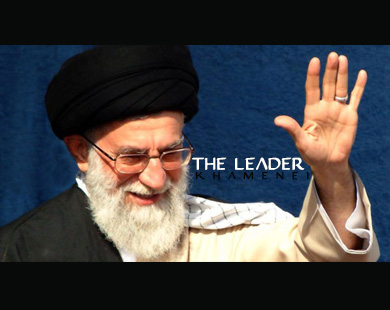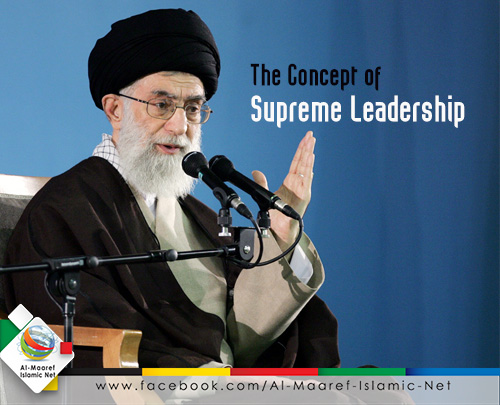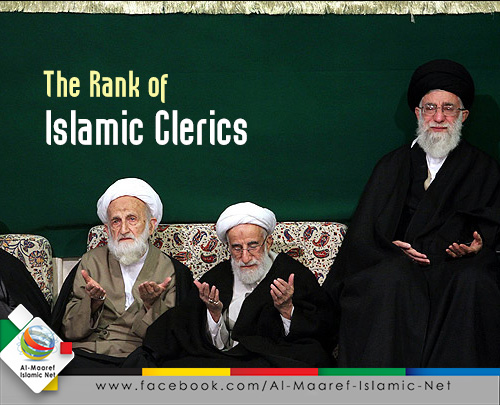The Guardianship of the Jurisprudence
Guardian for the Jurist
Imam Al-Houjja (May God hasten his honorable revelation) gave the authority during the period of his absence to the just jurisprudents whom he ordered the people to obey and refer to as regards all the affairs of the government, state, and leadership of the society. The Imam (May God hasten his honorable revelation) gave the jurisprudents a full reign to dispose of the authority within the limits of the interest of Islam. This is mentioned in the narrative of Issac bin Yaaqoub in which he relates, “I asked Mohammad bin Othman Al-Omari to deliver on my behalf a letter [to Imam Al-Mahdi] in which I asked [him] about certain issues which I was confused about. Then, it was signed back by the handwriting of our Imam The Master of This Time with: “…As regards the current happenings, refer to the narrators of our discourse, for they are my authority on you and I am God’s authority.”
The Characteristics of the Guardian
Imam Al-Houjja Al-Mahdi (May God hasten his honorable revelation), in order to prevent that a person who is not qualified to manage the affairs would arrive at the post of the guardianship, determined the traits by which the jurisprudence must be characterized in addition to the qualifications which make him eligible to carry out the guardianship in the best way. Then, what are those characteristics?
The First Characteristic: Jurisprudence
The Most High God says, ﴾…Is then He, Who gives guidance to the truth, more worthy to be followed, or he who finds hot guidance (himself) unless he is guided? Then, what is the matter with you? How judge you?﴿1 Then, the people must follow after the one who guides to the truth, and this one is none but the one who knows the truth.
It is related in Nahj Al-Balagha that Imam Ali (God’s peace bestowed upon him) said, “The one who is mostly deserving of this issue [the guardianship post] is the one who is the most capable of it and who is the most knowing about God’s Will in it.”
The Second Characteristic: Justice
This characteristic involves Islam, belief, and abidance to the rules of The Most High God as regards carrying out the duties and abandoning the forbiddances. The Most High God says, ﴾…and obey not him whose heart We made heedless of Our Remembrance, one who follows his own lusts and whose affair (deeds) has been lost.﴿2
Therefore, it is not allowed to give the guardianship post to a dissolute person who does not work in the light of God’s rules as regards what is permitted and what is forbidden.
The Third Characteristic: Efficiency
This is referred to in the above-mentioned narrative which is ascribed to The Prince of the Believers (God’s peace bestowed upon him): “…who is the most capable of it…”
Imam Al-Khamenei (May God lengthen his presence among us): The Guardian The Leader
Imam Al-Khaminaei (May God lengthen his presence among us) is the jurisprudence guardian on whom these characteristics are applicable. Even more, he is a grace bestowed by God upon us, as Imam Al-Khomeini (May his secret be sacred) talked about his character, “If you imagine that you are going to find in the entire world a person like Sayyed Al-Khaminaei (May God lengthen his presence among us), the man who is committed to Islam and the servant who is disposed by nature for the service of this nation, then you will not be able to. I know him since long years; he is a grace bestowed by God upon us.”
His Jurisprudence
In 1974 A.D., His Eminence (May God lengthen his presence among us) attained the degree of jurisprudence on the hand of his teacher The Great Sign of God Al-Ha’eri after he has attended the high studies on him for more than fifteen years.
After Sheikh Al-Araki (May his secret be sacred) had passed away, Imam Al-Khaminaei’s reference came to light on the basis of the religious evidence which judged him to be the most knowing among his contemporaries. Among the most prominent scholars who gave their testimonies for his reference are the following:
1- The Sign of God Sayyed Jaafar Al-Karimi
2- The Sign of God Sheikh Ahmad Jannati
3- The Sign of God Sheikh Mohammad Yazdi
4- The Sign of God Sheikh Mohammad Ali Al-Taskhiri
5- The Sign of God Sayyed Mahmoud Al-Hashimi
6- The Sign of God The Martyr Mohammad Baker Al-Hakeem (May his secret be sacred)
These scholars gave their testimonies for the most knowingness of Imam Al-Khaminaei (May God lengthen his presence among us) in addition to others whom we did not mention for the sake of brevity and in addition to the testimony of the group of scholars in Sacred kom.
His Asceticism
His Eminence The Leader (May God lengthen his presence among us) is a model of the guardian whom The Household (God’s peace bestowed upon them) wanted, and he practically applied this thorough patterning after the authority of Ali bin Abi Taleb (God’s peace bestowed upon him).
Mohsen Dost, the previous chief of The Wounded Institution, says, “His house was furnished with torn old rugs. We gathered them, sold them, added to their price a sum of money from our own personal money, and bought new carpets with which we furnished the house for him. When he was back and saw the carpets, he ordered them [the new carpets] to be taken away and that those worn rugs be returned.” From his sayings is the following: “If it is said to Al-Khaminaei, ‘Your presence in arranging the shoes in a certain Housseinyia is more beneficial than in the presidency,’ then I will turn to that work directly.”
His Struggle for God’s Sake
His Eminence The Leader (May God lengthen his presence among us) has a long and luminous history in the struggle for God’s sake. In 1962, he had a constructive role in the revolt and in the action of the Hawza which was representing the center of learning, piety, struggle for God’s sake, and martyrdom.
In 1963, Imam Al-Khomeini (May his secret be sacred) sent him to Mashhad in order to transmit three political calls, so he transmitted, by means of this, the seeds of the revolution into many villages and cities.
Sheikh Rafsanjani relates as regards the days of the front line, “Al-Ahwaz city would have been defeated as well had it not been for Al-Khaminaei’s (May God lengthen his presence among us) and Sheikh Shamran’s going to Al-Ahwaz and their ordering to dig a trench in the outskirts of the city, and had not it been for the resistance of the small groups from The Guard forces.”
His Eminence (May God lengthen his presence among us) was arrested several times during which he was tortured with all means in the prisons and cells of the Savack. In 1981 and while he was delivering the Friday speech in The University of Tehran, he was exposed to an attempt of assassination attempt of which he was seriously wounded.
His Courage and Firmness
You can get acquainted with the firmness and resoluteness of The Imam The Leader (May God lengthen his presence among us) through every attitude he took in his life. The most prominent attitude is the epic historical Friday prayer. His Eminence (May God lengthen his presence among us) was delivering the speech; at the same time, the planes of the enemy were flying in the sky and threatening to shell the place of the Friday prayer. At the same time, an explosion took place among those praying and thus led to tens of casualties, between wounded and martyrs. In spite of all of that, His Eminence (May God lengthen his presence among us) continued the prayer and the speech; he could, with his style, restore the peace and assurance to the hearts of those praying. This attitude aroused the admiration of the enemies beside that of the friends.
For Reading
Report to Me His Health State Every Half an Hour
At 11:05, the phone rang while we were sitting with His Eminence Sheikh Al-Sanee’ii in the bureau of Imam Al-Khomeini (May his secret be sacred). We were told about the occurrence of an attempt to assassinate The Sign of God Al-Khaminaei. This upset everybody present there. It was necessary to tell Imam Al-Khomeini (May his secret be sacred) about what happened, so Sheikh Al-Sanee’ii asked me, being a doctor, to arrange the affair in a way that The Imam (May his secret be sacred) would be told about the event without his being negatively influenced. I thought about melting a sedative pill in a cup of tea which we would present to him to drink, and then we would tell him the news gradually after half an hour i.e. after the medicine would have had its impact.
At the beginning, Sheikh Al-Sanee’ii agreed, yet he then said, “Let us consult God about this.” The consultation forbade us to do that, so he decided to go tell him by himself.
When he got out of The Imam’s (May his secret be sacred) room, he told us, “I was completely confused when I entered where The Imam was and I did not know how to tell him about what happened. He was sitting on the praying rag; and before I told him anything, he had asked me, ‘Did they kill Sayyed Al-Khaminaei?’ Then, I calmed down since I knew that he had already known about the event.”
I do not know how The Imam had known about the assassination attempt in spite of the fact that nobody before Sheikh Al-Sanee’ii entered his room. It seems that he was inspired about that, and that he knew that Sheikh Al-Sanee’ii entered his room in order to tell him about the assassination attempt, so he had asked him about the state of Sayyed Al-Khaminaei before Sheik Al-Sanee’ii did so, thus making it easier for him.
To be remarked, the quietness of The Imam (May his secret be sacred) does not at all mean that he was not concerned in that event. On the contrary, it manifests his deep patience, his high endurance of the afflicting calamities, and his concern at that time in looking for ways of solving the problem. He, through Sheikh Al-Sanee’ii, asked me to report to him every half an hour the health state and the developments of the treatment of Sayyed Al-Khaminaei i.e. to report to him the blood pressure, the breathing state, the rate of the heart beats, and the consciousness state. This, therefore, indicates the importance of the whole affair to Imam Al-Khomeini (May his secret be sacred) because usually only doctors ask about such points.3
1- The Noble Qur'an/ Younis [Jonah] Chapter/ Verse 35
2- The Noble Qur'an/ Al-Kahef [The Cave] Chapter/ Verse 28
3- Dr. Por Moqaddas/ “Jumhouri Islami” Newspaper/ on March 13th, 1369 of immigration


















